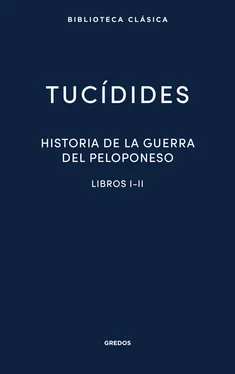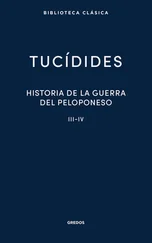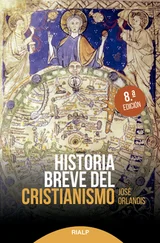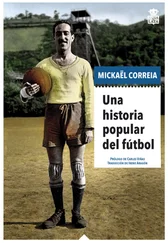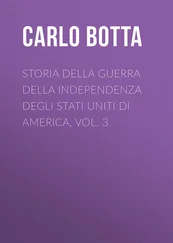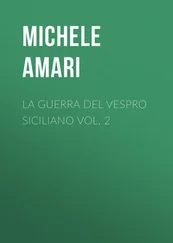MORLEY, N., Thucydides and the Idea of History, Londres, I. B. Tauris, 2014.
MORRISON, J. V., «Historical Lessons in the Melian Episode», TAPhA 130, págs. 119-148, 2000.
—, «Interaction of Speech and Narrative in Thucydides» en Rengakos y Tsatmakis (eds.), págs. 251-277, 2006.
MURARI PIRES, F., «Thucydidean modernities», en Rengakos y Tsatmakis (eds.), págs. 811-837, 2006.
NICOLAI, R., «Κτῆμα ἐς αἰεί. Aspetti della fortuna di Tucidide nel mondo antico», RFIC 123, págs. 5-26, 1995.
—, «Thucydides’ Archaeology: Between epic and oral traditions», en N. Luraghi (ed.), The Historian’s Craft in the Age of Herodotus, Nueva York, Oxford University Press, págs. 263-285, 2001.
ODORICO, P., «La cultura della συλλογή», BZ 83, págs. 1-23, 1990.
ORWIN, C., «Stasis and plague: Thucydides on the dissolution of society», The Journal of Politics 50, págs. 831-847, 1988.
PADE, M., «Thucydides», en V. Brown (ed.), Catalogus Translationum et Commentariorum, vol. 8, Washington, págs. 103-182, 2003.
PAGE, D. L., «Thucydides’ description of the Great Plague at Athens», CQ 3, págs. 97-119, 1953.
PARMEGIANNI. G., «L’εὕρειν senza σαφές: Tucidide e la conoscenza del passato», Ancient Society 33, págs. 235-283, 2003.
PARRY A., «The language of Thucydides’ description of the plague», BICS 16, págs. 106-118, 1969.
—, «Thucydides’ Use of Abstract Language», Yale French Studies 45, págs. 3-20, 1970.
—, Logos and ergon in Thucydides (Diss. Harvard 1957); reimpr. con introd. de D. Kagan, Salem, 1981.
PINEDA, V., «La preceptiva historiográfica renacentista y la retórica de los discursos: antología de textos», Talia Dixit 2, págs. 95-219, 2007.
PLANT, I. M., «The Influence of Forensic Oratory on Thucydides’ Principles of Method», CQ 49, págs. 62-73, 1999.
PORCIANI, L., La forma proemiale. Storiografia e pubblico nel mondo antico, Pisa, Scuola Normale Superiore, 1997.
RAAFLAUB, K., «Ktēma es aiei: Thucydides’ concept of ‘learning through history’ and its realization in his work», en Tamiolaki y Tsakmakis (eds.), págs. 3-22, 2013.
RAWLINGS, H. R., The structure of Thucydides’ History, Princeton, Princeton University Press, 1981.
—, «Writing History implicitly through Refined Structuring», en Balot, Forsdyke y Foster (eds.), págs. 195-209, 2017.
RECHENAUER, G., Thukydides und die hippokratische Medizin, Hildesheim, Olms, 1991.
RECHENAUER, G. y POTHOU, V. (eds.), Thucydides, a Violent Teacher? History and its Representations, Göttingen, V&R, 2011.
RENGAKOS, A., «Fernbeziehungen Zwischen den thukydideischen Reden», Hermes 124, págs. 396-417, 1996.
RENGAKOS, A. y TSAKMAKIS, A. (eds.), Brill’s companion to Thucydides, Leiden, Brill, 2006.
REYNOLDS, J. J., «Proving Power: Signs and Sign-inference in Thucydides’ Archaeology», TAPhA 139, págs. 325-368, 2009.
RHODES, P. J., Thucydides, Londres y Nueva York, Bloomsbury, 2015.
ROMERO CRUZ, F., «Tucídides en la historia de la prosa griega», en G. Morocho (ed.), Estudios de prosa griega, León, Universidad de León, págs. 123-140, 1985.
ROOD, T., Thucydides: Narrative and Explanation, Oxford, Oxford University Press, 1998.
—, «Thucydides and his Predecessors», Histos 2, págs. 230-267, 1999.
—, «Objectivity and Authority: Thucydides’ Historical Method», en Rengakos y Tsakmakis (eds.), págs. 225-249, 2006.
ROS, J., Die METABOLE (Variatio) als Stilprinzip des Thukydides, (reimp.), Ámsterdam, Hakkert, 1986.
RUSTEN, J. S. (ed.), Thucydides, Oxford, Oxford University Press, 2009.
—, «Kínesis in Thucydides’ Preface», en C. Clark (ed.), Kinesis: Essays for Donald Lateiner, Ann Arbor, University of Michigan Press, págs. 27-40, 2014.
—, «The Tree, the Funnel and the Diptych. Some Paterns in Thucydides’ Longest Sentences», en Balot, Forsdyke y Foster (eds.), págs. 224-237, 2017.
SAHLINGS, M., Apologies to Thucydides: Understanding History as Culture and Vice Versa, Chicago, University Press, 2004.
SANCHO ROCHER, L., «Sociología de la stásis I y II», Athenaeum 104, págs. 5-30 y 373-396, 2016.
SCARDINO, C., Gestaltung und Funktion der Reden bei Herodot und Thukydides, Berlín, De Gruyter, 2007.
SCHADEWALDT, W., Die Geschichtsschreibung des Thukydides. Ein Versuch, Berlín, Weidmann, 1929.
SCHÜTRUMPF, E., «‘As I thought that the speakers most likely might have spoken...’»: Thukydides Hist. 1.22.1 on Composing Speeches», Philologus 155, págs. 229-256, 2011.
SHANSKE, D., Thucydides and the Philosophical Origins of History, Cambridge, Cambridge University Press, 2007.
SIERRA MARTÍN, C., Tucídides archaiologikós, Zaragoza, Pórtico, 2017.
SMITH, CH. F., «Traces of epic usage in Thucydides», TAPhA 31, págs. 69-81, 1900.
SOLMSEN, F., «Thucydides’ treatment of words and concepts», Hermes 99, págs. 385-408, 1971.
SPIELBERG, L., «Language, Stasis and the Role of the Historian in Thucydides, Sallust and Tacitus», AJPh 138, págs. 331-373, 2017.
STADTER, P. A. (ed.), The Speeches in Thucydides, Chapel Hill, University of North Carolina Press, 1973.
STAHL, H.-P., Thucydides: Man’s Place in History, Swansea, Classical Press of Wales, 2003.
STREBEL, H. G., Wertung und Wirkung des thukydideischen Geschichtswerkes in der griechisch-römischen Literatur, Múnich, Pilger, 1935.
TAMIOLAKI M. y TSAKMAKIS, A. (eds.), Thucydides between History and Literature, Berlín y Boston, De Gruyter, 2013.
THAUER, CH. R. y CH. WENDT (eds.), Thucydides and Political Order. Lessons of Governance and the History of the Peloponnesian War, Nueva York, Palgrave Macmillan, 2016.
THOMAS, R., «Thucydides’ Intellectual Milieu and the Plague», en Rengakos y Tsakmakis (eds.), págs. 87-107, 2006.
VISVARDI, E., Emotion in Action: Thucydides and the Tragic Chorus, Leiden y Boston, Brill, 2015.
VOLK, M. T., The Melian Dialogue in Thucydides. A Structural Analysis, Columbus, Ohio State University, 1970.
WALBANK, F. W., «History and Tragedy», Historia 9, págs. 216-234, 1960.
WASSERMANN, F., «The Melian Dialogue», TAPhA 78, págs. 18-36, 1947.
WEES, H. VAN, «Thucydides on Early Greek History», en Balot, Forsdyke y Foster (eds.), págs. 39-62, 2017.
WESTLAKE, H. D., «The Two Second Prefaces of Thucydides», Phoenix 26, págs. 12-17, 1972.
—, Individuals in Thucydides, Cambridge, Cambridge University Press, 1968.
ZAGORIN, P., Thucydides. An Introduction for the Common Reader, Princeton y Oxford, Princeton University Press, 2005.
ZIOLKOWSKI, J., Thucydides and the Tradition of Funeral Speeches at Athens, Nueva York, Arno Press, 1981.
ZUMBRUNNEN, J., «Courage in the Face of Reality: Nietzsche’s Admiration for Thucydides», Polity 35, págs. 237-263, 2002.
NOTA A LA PRESENTE TRADUCCIÓN
Nuestra traducción ha seguido el texto establecido por J. de Romilly, L. Bodin y R. Weil en la Collection des Universités de France editada por Les Belles Lettres, París, 1953-1972. Ha tenido presente, asimismo, la edición de G. Donini (Turín, 1982) y, para los libros I y II, el texto de O. Luschnat (Leipzig, 2.ª ed., 1960) y la edición de G. B. Alberti (libros I-II, Roma, 1972). Hemos consultado, además, la de A. Maddalena (libro I, Florencia, 1951-1952), la de H. Stuart Jones (rev. J. E. Powell, Oxford, 1942), la de la Loeb de Ch. F. Smith (Londres, Cambridge Mass., 1919-1923) y otras ediciones y comentarios textuales de los que se dará referencia en las notas a diversos pasajes. La fundamental obra de A. W. Gomme, A. Andrewes, K. J. Dover, A historical commentary on Thucydides (Oxford, 1945-1981, 5 vols.), ha sido de inestimable valor para la redacción de las notas, que, al igual que la traducción, también son deudoras de lecturas, observaciones y sugerencias contenidas en ediciones y traducciones como las de Poppo y Stahl, Arnold, Krüger, Classen y Steup, Forbes, Hude, Ch. F. Smith, Maddalena, Romilly, F. R. Adrados, Berenguer, Horneffer-Strasburger, Landmann, K. J. Dover, Donini, Moggi y en libros y artículos cuyas referencias irán apareciendo a lo largo de las mismas notas o en la bibliografía final. En cuanto a las traducciones de Tucídides en España, dejando aparte versiones inactuales como la de los discursos tucidídeos al aragonés, realizada hacia el año 1384, del Matritensis 10801, procedente de la biblioteca del Marqués de Santillana, y la defectuosa traducción clásica española de Diego Gracián, secretario del emperador Carlos V, a quien está dedicada (Salamanca, Ioan de Canova, 1564), solo contamos con dos buenas versiones completas de nuestro historiador: la de F. Rodríguez Adrados (Madrid, Biblioteca Clásica Hernando, 1952-1955, 3 vols.), prestigiosa guía para los estudiosos de un escritor profundo y atractivo que exige una atenta lectura, y la catalana de J. Berenguer Amenós (I-V, Barcelona, F. Bernat Metge, 1953-1970), a quien, como a A. W. Gomme, sorprendió la muerte antes de acabar su obra, llevada a término por M. Balasch (VI-VIII, Barcelona, 1978-1982). Tenemos, asimismo, una buena traducción fragmentaria de J. Alsina (Guadarrama/Punto Omega, 1976), una interesante selección de pasajes llenos de actualidad.
Читать дальше
